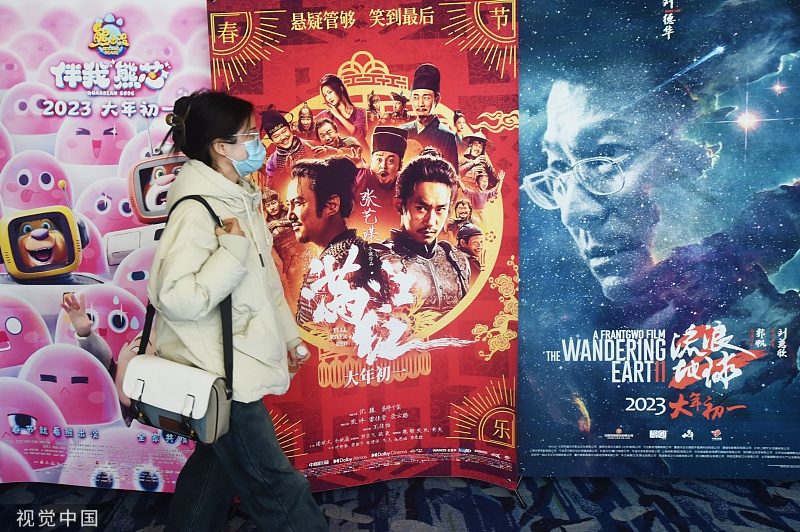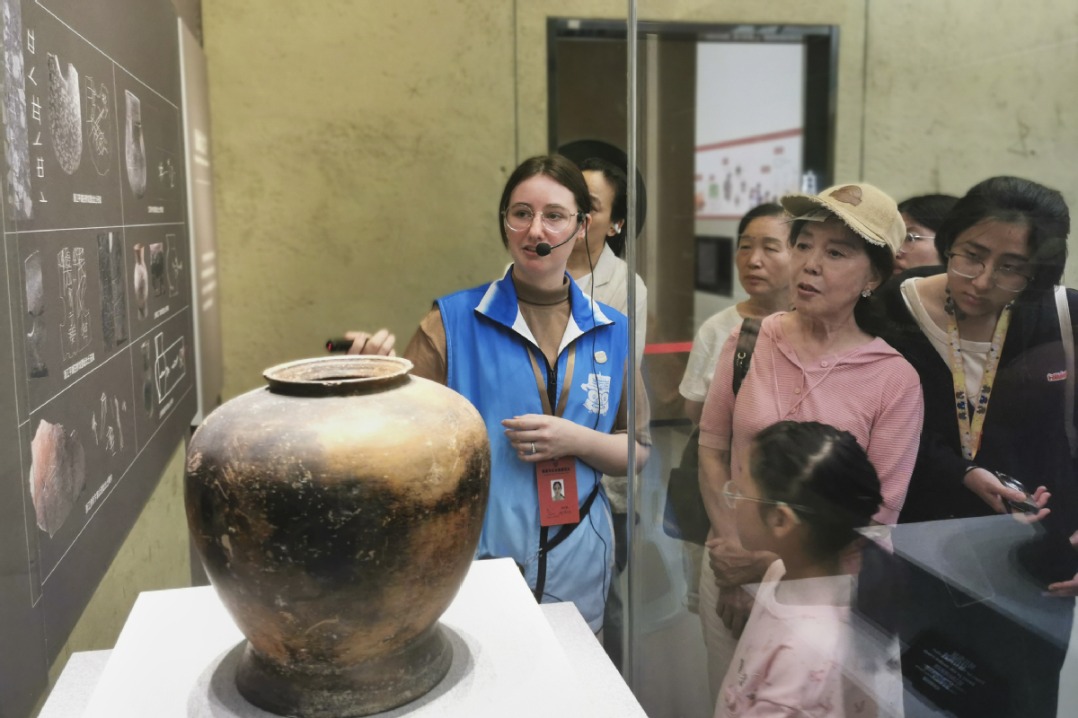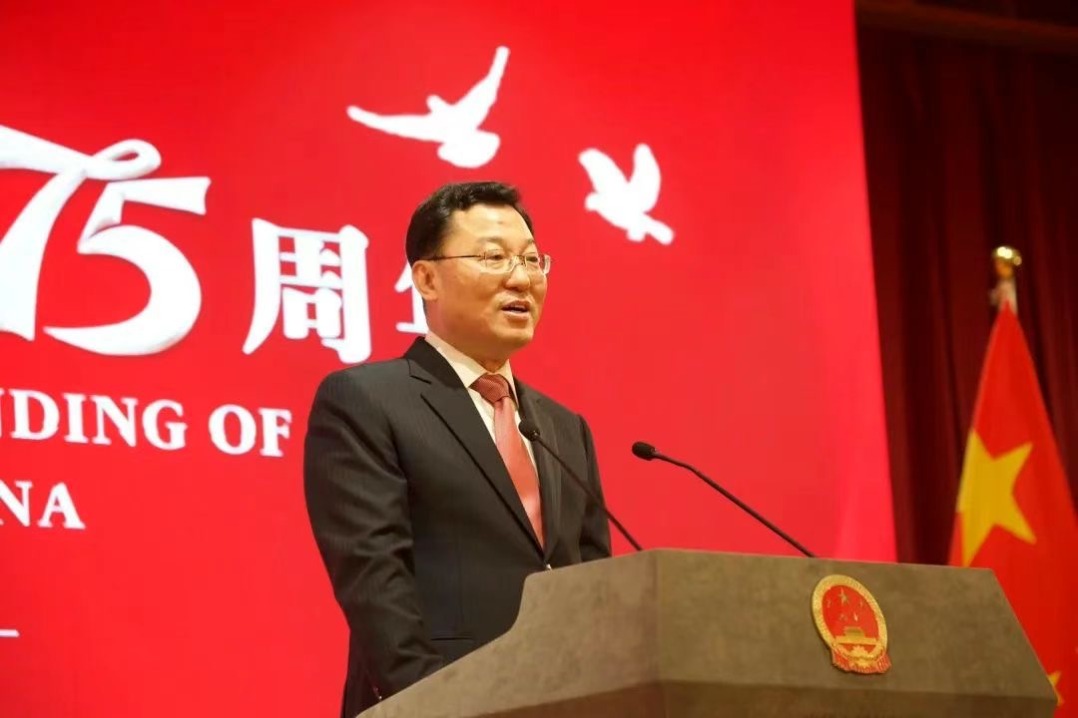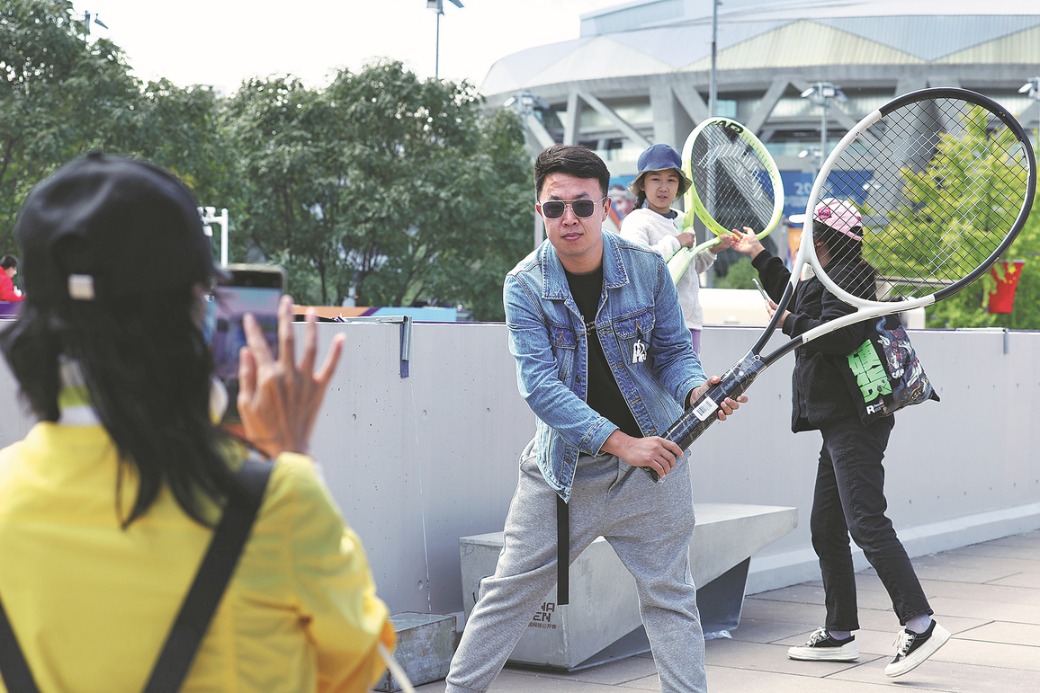Full River Red: A romantic expression of patriotism
By Wang Tiantian | chinadaily.com.cn | Updated: 2023-02-17 11:09

“Full River Red” is a poem by Yue Fei, a ancient Chinese military general who lived during the Southern Song Dynasty (1127-1279). It is full of strong patriotic feelings and expresses conviction for defending the motherland. The heroic fighting spirit and strong appeal in the poem have played an important role in inspiring people in resisting foreign invasion. “Full River Red” has thereby become a masterpiece in the history of Chinese literature.
This Spring Festival, Zhang Yimou, one of China’s most famous and prolific directors, has returned to the fiercely competitive holiday box office with his latest directorial effort, Full River Red. The name of the movie comes from the poem. Recently discussion about the movie has heated up online, with netizens discussing not only the plot, but also the film’s expression of patriotism.
The film takes place in 1147, five years after Yue Fei was falsely accused and murdered by Zhao Gou, a fatuous emperor, and Qin Hui, the Song dynasty chancellor. On behalf of the Southern Song Dynasty, Qin, who controlled the whole kingdom, went to Molingdu to sign a humiliating agreement with the Jin dynasty. The night before departure, the Jin envoy is found murdered and the letter that he was carrying for the chancellor has vanished. Qin feared his collusion with the Jin Dynasty would be exposed, so he ordered Sun Jun and Zhang Da to find the murderer within one hour.
As the plot progresses, the audience learns this is a struggle between Yue's followers and Qin. On the surface, Yue's followers killed the envoy and took the secret letter in order to obtain evidence of Qin's collusion and take the opportunity to kill him. Unfortunately, the treacherous Qin already knew their plans, and decided to use the investigation to wipe them out.
Qin thought victory was at hand, but he still underestimated the power of the people, and the will and courage of Yue's followers. Their bigger plan is for Qin to say the last words Yue wrote in prison before he died - that is, the poem "Full River Red". To this end, ordinary characters in the film, soldiers, riders and dancers, refuse to lower their heads even if they die, leading to many tear-jerking moments.
Throughout the ages people have sacrificed their lives for justice, and the film shows this noble and righteous spirit, worthy of being written in history and passed from generation to generation. The movie leads the audience to understand Yue's sacrifice for justice and loyalty to the country.
Ancient Chinese poetry, as a carrier of emotion, gives birth to multiple literary images and meanings. This romantic expression is a spiritual trait of the Chinese people. At the end of the film, Qin's stand-in releases Yue's "Full River Red" for the first time and leads the entire army to recite it. This is a romantic sublimation of history by the screenwriter, but also a uniquely Chinese expression of patriotism.
Wang Tiantian is an MA student of English linguistics at Shandong University (Weihai).
The views don't necessarily reflect those of China Daily.
If you have specific expertise or would like to share your thoughts about our stories, then send us your writing at opinion@chinadaily.com.cn and comment@chinadaily.com.cn.
























